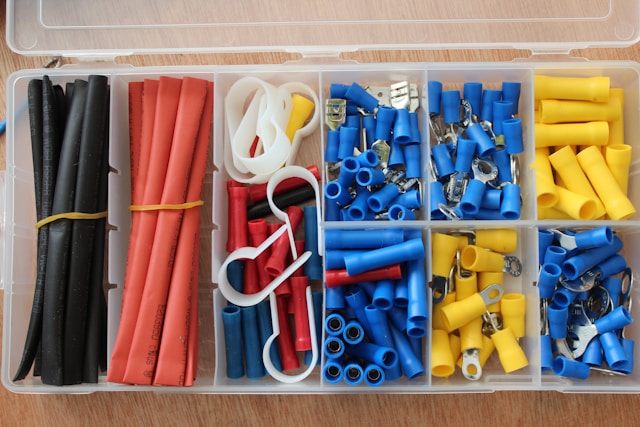Modern building work relies on electricity. This goes for the equipment required to put even a small-scale construction project together, as well as the final structures themselves, which will often need to provide mains power to the people who’ll eventually be living in, working in, or otherwise using them.
Why Electrical Connections Matter in Construction
When it comes to electrical cabling, the connectors often represent a point of failure. The interior of a wire, provided that it hasn’t been compressed, twisted, or wrapped around a sharp corner, is unlikely to break down – but the connections are often made on the site itself, in less-than-ideal conditions. If you’re a homeowner making DIY alterations to your electrical systems, then the risk might be even greater.
When connections are partial or otherwise faulty, they won’t provide reliable power. Worse, they could cause damage to equipment, short out, or even spark a fire. In other words, getting the connections right is critical.
Best Practices for Ensuring Quality Electrical Connections
Making reliable connections consistently requires practice. But it also requires the correct tools. Invest in quality ones, and learn to wield them effectively, using the appropriate techniques, and abiding by the right practices (and any wiring diagrams provided by appliance manufacturers). The gauge of the wire should match the connector being used. Double-check all connections after they have been made.
The Role of Connectors in Electrical Installations
The connectors themselves will also need to be of the required quality. They should house the end of the wire securely, such that the wire isn’t at risk of being shaken free. Investing in the right connectors, preferably in bulk, will help to ensure that results are consistent, and that costs are minimized.
Common Mistakes to Avoid in Electrical Wiring
A newly qualified electrician might have the knowledge and skills they need to do the job right – but only with experience will they be able to avoid making the common mistakes. It’s therefore worth thinking about these mistakes ahead of time, so that you can avoid them.
Don’t overload any given circuit. Make sure that you’re abiding by the appropriate codes. Know your limits, and when to call in someone with more expertise than you have. Even professionals sometimes have moments of uncertainty. If you know your limits, you can avoid getting into trouble – and having to deal with an expensive problem later on.
